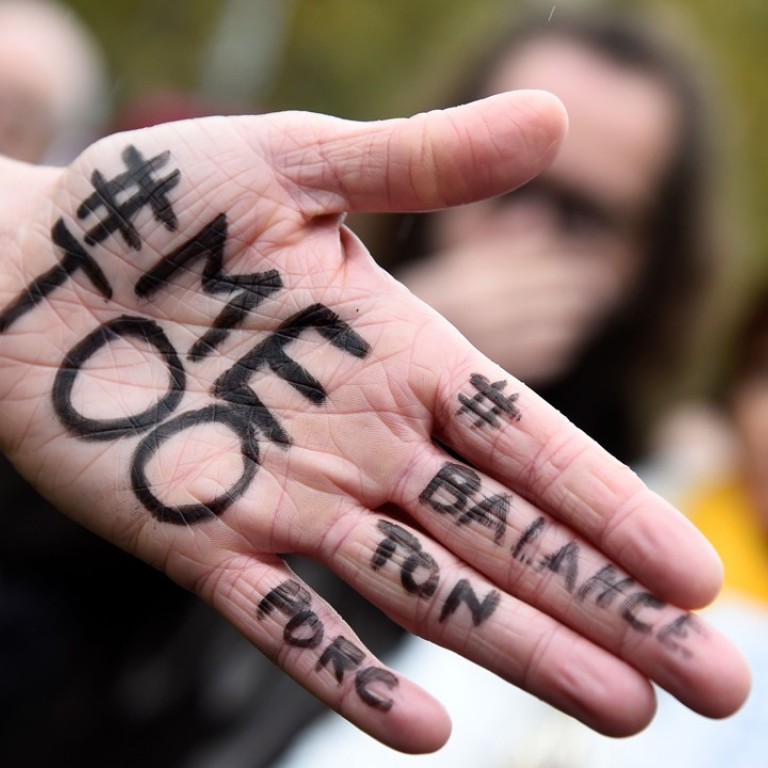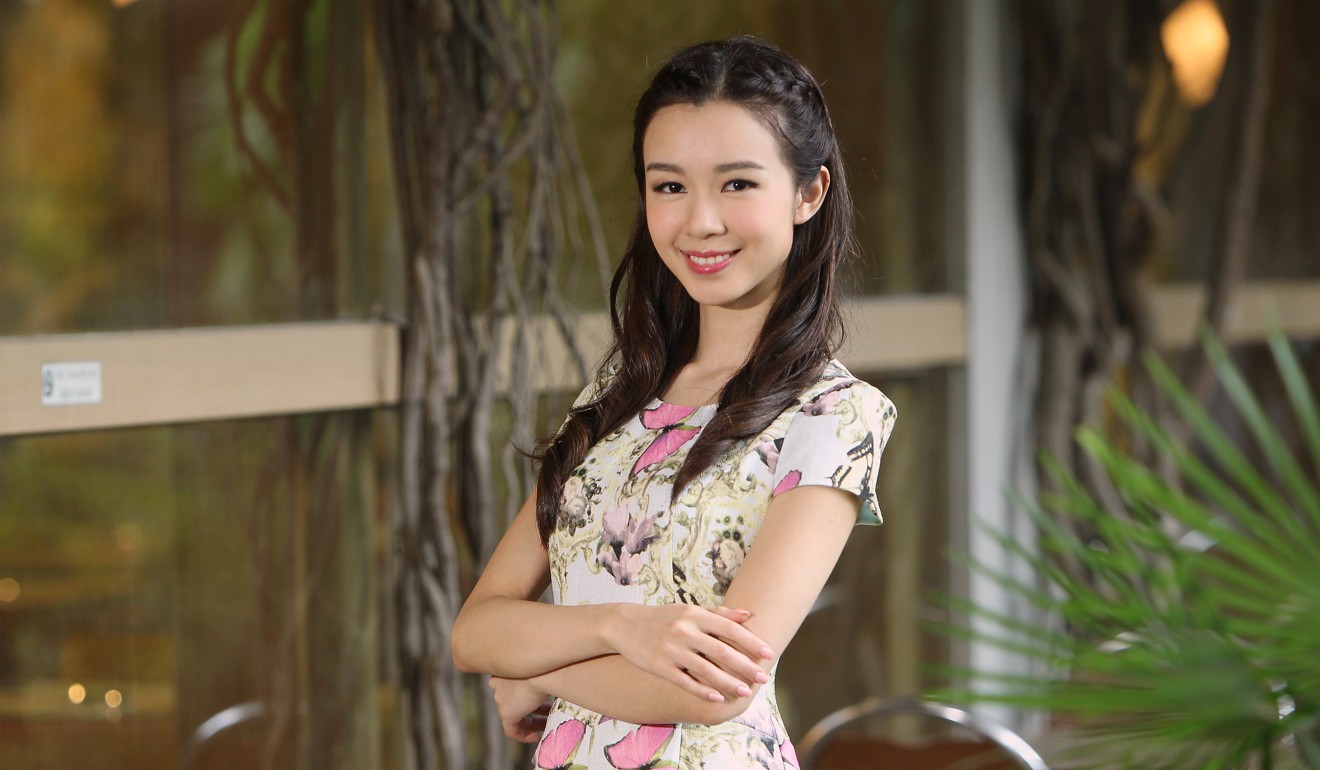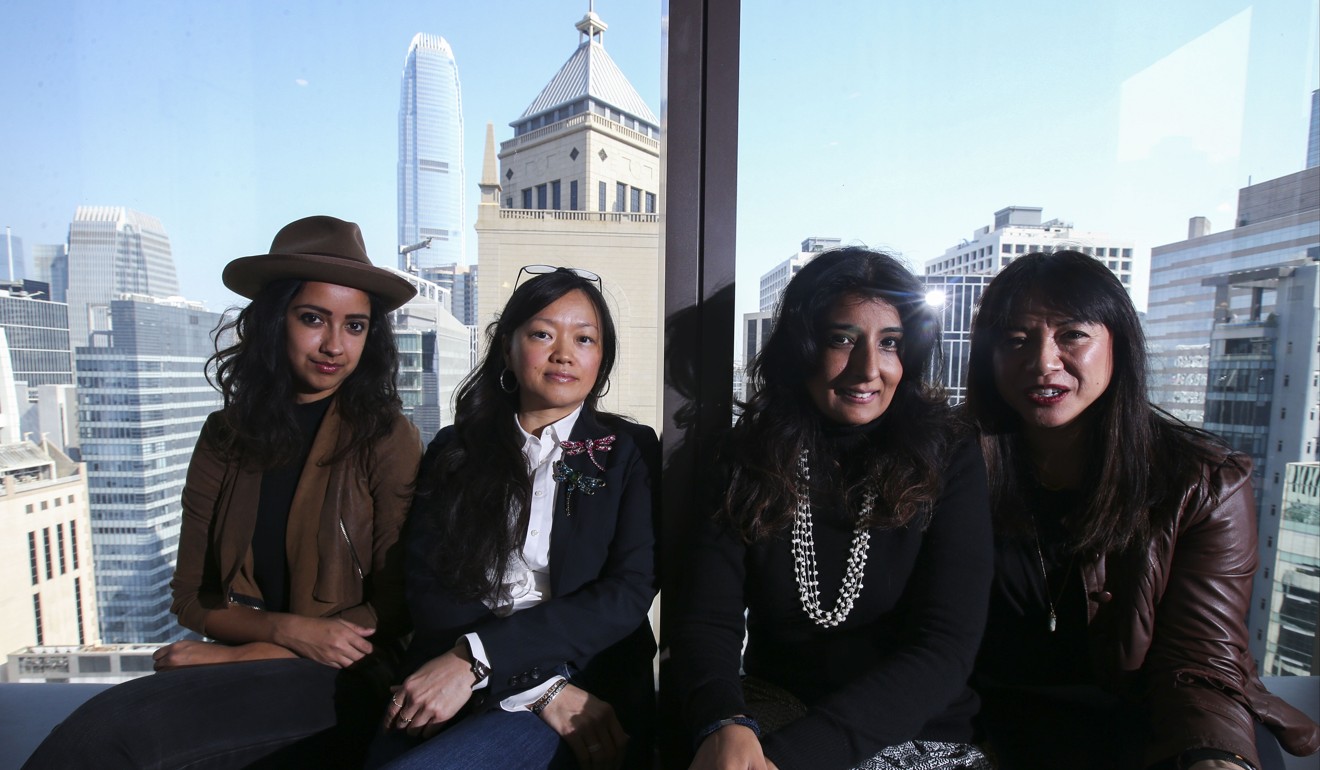
After #MeToo comes Now What? as women host forum to push for change in Hong Kong community
Four women with completely different backgrounds aim to challenge community through face-to-face discussions
It is time to allow sexual harassment victims the chance to share their nightmares with one another, face-to-face, instead of just hiding behind the screen and keyboard in the #MeToo movement, said the organisers of a discussion forum.
Four women with completely different backgrounds joined hands to organise the first discussion last week, aiming to throw a big mark into the community by asking them “Now What?”
“For change to happen, you cannot rely on anyone, this is giving people the autonomy to change themselves and then to change their situation,” says Keshia Hannam, one of the four organisers who is also co-founder of a women’s network Camel Assembly.

While the cyber solidarity has been empowering, Karen See, another organiser of the forum, said she wanted to see the conversation continue – in real life, face-to-face.
See also wanted to invite male participants to their next discussion forum on January 15.
“Keeping men out does not help our cause, so it will be a gender neutral event. The future is ours and for that to be true, it requires the binding of both sides and we need allies,” See says.
“If we don’t speak up together and stand up for each other then we are also complicit.”
The first forum was made up of a few sessions. The first asked participants to identify and acknowledge the existence of a harassment or assault.
“The identification of sexual harassment or assault is very important, and in most cases, people just do not know because it is not always an extreme case. The harassment can be really subtle,” said organiser, Dr Helen Lockey, who is also the director of HKU’s Educational and Institutional Intelligence Strategic Planning and Provost’s Office.

Karina Calver, also an organiser, who is a trauma and relationship counsellor, further elaborated that not comfortable does not necessary always have to mean a hand on a lap or knee.
“It can be verbal, it could also just be the way they’re looking at you, all sorts of things,” Calver said.
Then comes action – the response stage.
Instead of dismissing the incident, victims are encouraged to address whenever they are made to feel uneasy.
While being aggressive may be one way, Hannam suggested to do so with a compassionate approach. “Calling them out in front of a group is not going to have a huge effect because there will be a defence mechanism. You could take that person aside in private and identify what the behaviour was and why it was unappropriate, then kindly ask them to stop. It’s about being compassionate in the way you say it rather than going hard,” the councillor adds.

Understanding how hard it may be to face the perpetrator, Lockey said victims can speak out with just facial and bodily gestures.
“Your body language or the look on your face is one strategy to say no I am not happy with this.”
Sexual harassment or assault is not something to be solved alone, the group says, believing that the community can work together to bring change.
The four reiterated that reluctance to confront perpetrators gives them the upper hand so the whole society must come together to fight against such actions.

